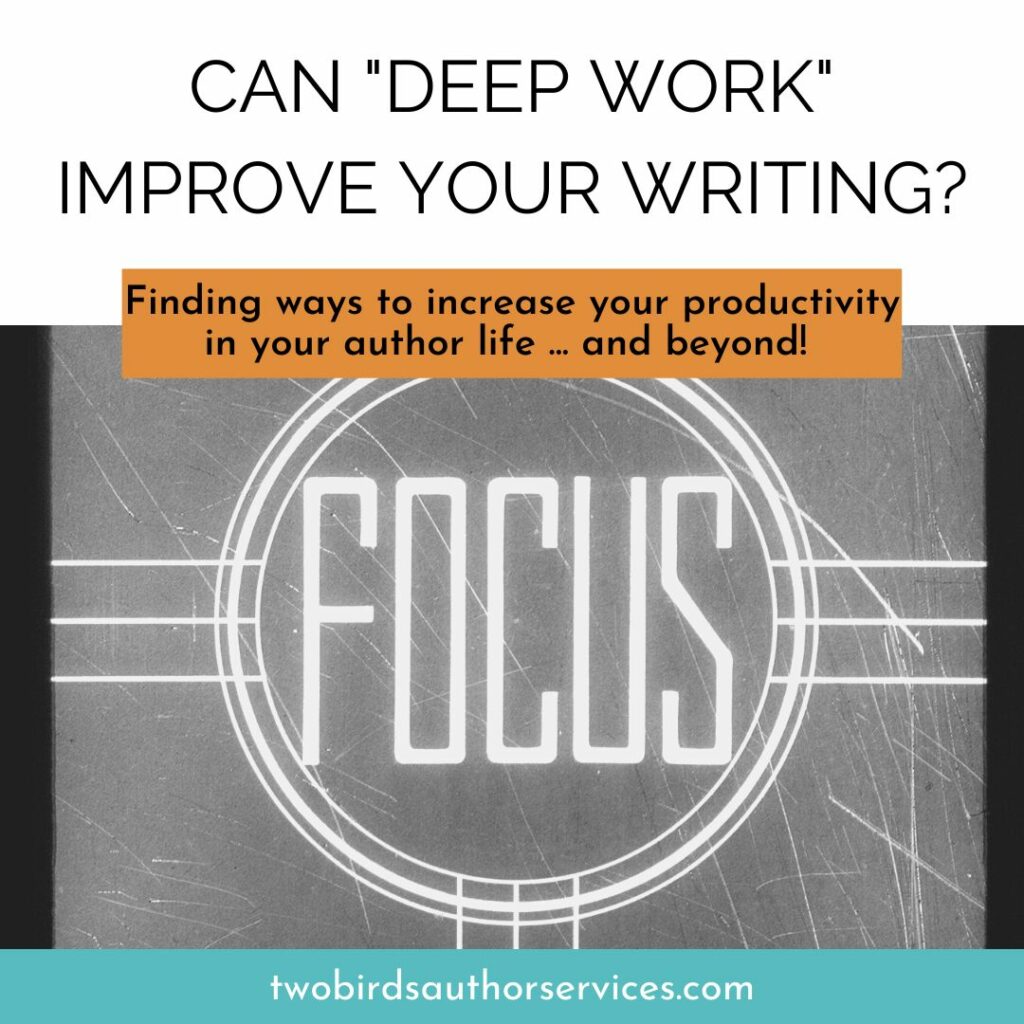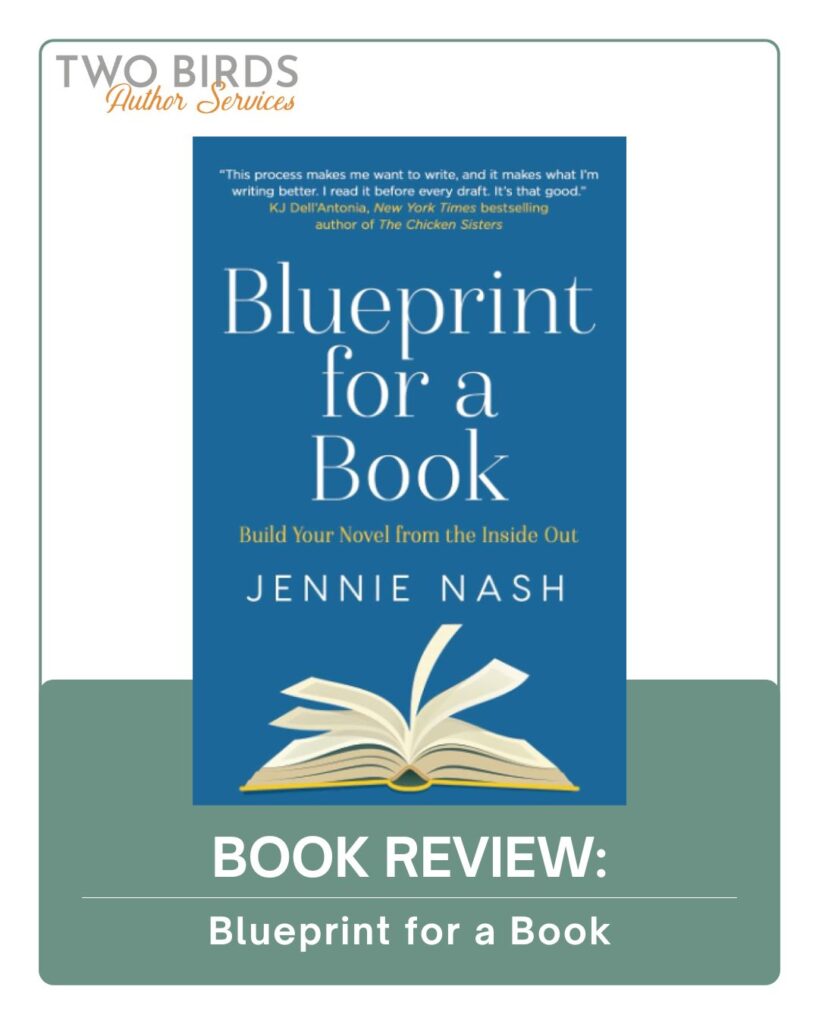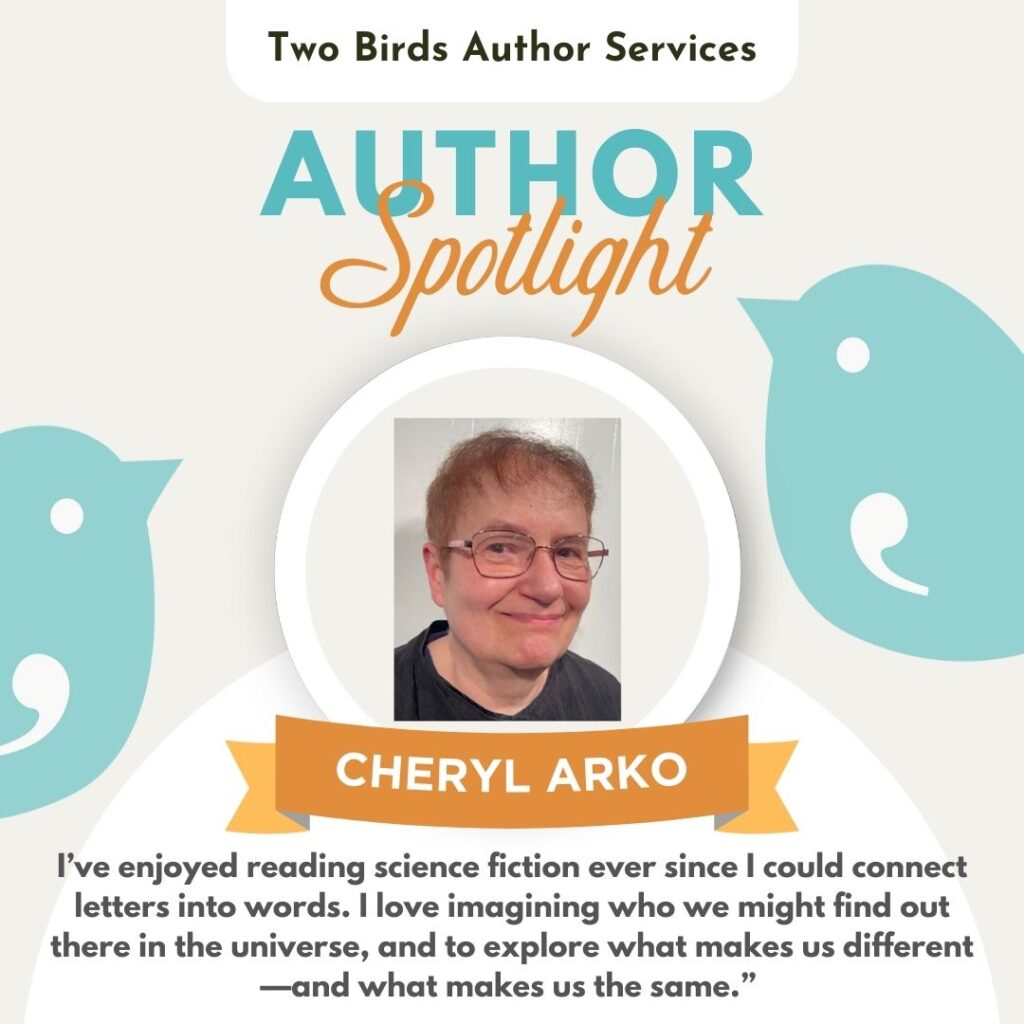Finding ways to increase productivity in your author life and beyond
I recently listened to the audiobook of Deep Work, Rules for Focused Success in a Distracted World by Cal Newport. The book was written in 2016, less than ten years ago, but these days that’s a lifetime. Even so, many of the ideas Dr. Newport puts forward in his book still ring true.
The basic premise of the book is the notion that due to our culture of distraction, we are losing the ability to focus deeply on any one particular thing. We spend time doing “shallow work,” like checking/answering email, texting, spending time on social platforms, etc. Our brains become addicted to the dopamine hits we get from completing quick, easy tasks, and so we spend more time doing those than diving into a project that requires our full attention, substantial time, and maximum brain power.
My most recent anecdotal evidence of the truth of his words came on a recent flight from Dallas to San Francisco. I sat in a middle seat and watched a woman in front of me (through the gap between the seats) who was clearly “working.” She flew from one screen to the next on her laptop, never landing anywhere for very long. I watched in amazement as she looked at her pay (she worked as an Amazon technical writer), her email, multiple software project portals and documents, and blooper reels of Seinfeld on YouTube. It was exhausting just to observe.
We are all probably guilty of some behavior like this. Distractions are everywhere! Email, YouTube, other social platforms, family obligations, and, if writing is a side-job, our full-time jobs might take priority as well.
So with all of these things pulling at our attention, how can we use the idea of Deep Work to be better authors? Here are a few ideas.
Practice creating distraction-free time.
Any time we set out to make long-term changes to our behavior, it requires practice. Some people are good at jumping in with both feet when it comes to making significant changes, but easing into a new routine might make more sense.
For example, if you want to spend time writing without being distracted by your phone, start out by leaving your phone in another room, then setting a timer on your computer for thirty minutes. When the timer goes off, take a break and check your phone for a few minutes (maybe setting a time limit for that too). Repeat.
Be diligent about scheduling that distraction-free time.
Those thirty-minute blocks of time mentioned above probably won’t schedule themselves! It’s up to you to set aside time to practice your Deep Work. There are many ways to schedule this time for yourself, and Cal gives a few examples in his book. But find a way to make time to do the work that’s important to you.
Do a social media reality check.
As authors, it’s easy for us to believe we have to be on all the platforms all the time. How often do you go onto Instagram in order to check your likes or followers, or post something ostensibly book related, and then get lost in scrolling? And are you maybe doing this every few minutes? Hours?
The designers of these platforms have one goal: to keep you on their app. Are you on there because you “need” to be, or because it’s habit?
And do you need to be on all the platforms you’re currently on?
Batch “shallow work” to save time.
Consider putting time aside for activities that count as shallow work and doing them all at once. Can you designate Saturdays as personal email catch-up day? Can you sit down to take care of all your finances once per week? This one is hard for me, and here’s why. Utility companies, credit card companies, and banks all love to send emails to remind you that a bill is due. When I see one of these emails come in, I want that dopamine hit of opening that email to eliminate the visual reminder that I have an unread email, and then I want to take care of the task to get the reminder out of my inbox. Do this a few times a day and it’s a waste of time!
Are there any areas in your life that work similarly? Consider batching those shallow work tasks and scheduling a designated time to get them all done at once.
Hopefully with these few ideas listed here, you can see how the concept of Deep Work might benefit you as a writer. Creating an engaging, complex work of fiction takes focus, time, and energy. Your mind needs uninterrupted time to process, mull, and come up with new ideas. If you’re a full-time writer, you might have more time to schedule blocks of Deep Work. But even if you only have thirty minutes per day, you can learn to make the most of that by creating distraction-free time during which your mind can focus on a single objective.
The ideas put forth by Cal in his book can obviously be applied to many parts of our life, not just our writing career. It’s likely you can put some of his ideas to work in other areas and therefore give you even more time to write!
Because each of us is so unique—with our own neural pathways, habits, and strengths—is no single set of steps that will work for everyone. We each have our own individual paths to accomplish our goals. But coming at this from the perspective of Deep Work, perhaps you can see there are ways you can set up your life, no matter how busy you are.
I hope you’ll take the time to check out his book to learn more, because I’m sure I didn’t do him much justice here. But I hope you get the general idea, which is that this is a good book, and I’ll bet that it’ll help you succeed in your writing career.
Have questions about the editing process? We’d love to chat with you and help you figure out your next steps Contact us to set up a free sample edit.
Sign up to receive our monthly newsletter, full of more helpful info and special deals!



